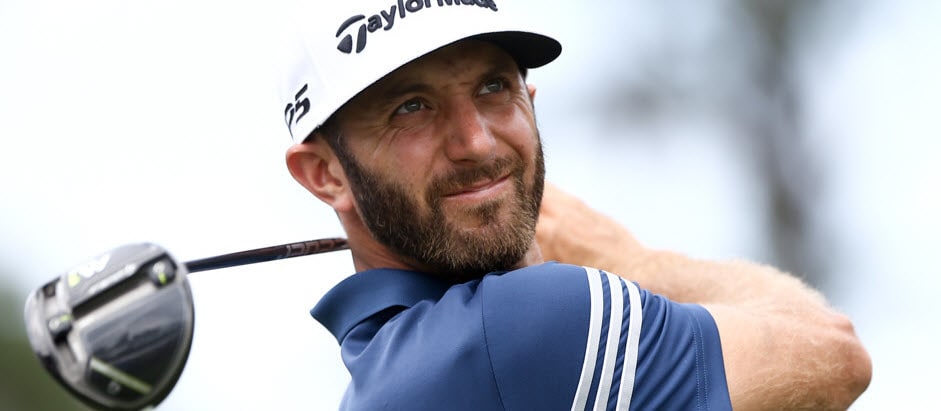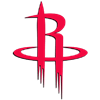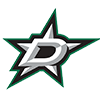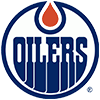Daily Fantasy Sports keep growing and growing. While it seems good old-fashioned season-long leagues among friends are still the focal point of fantasy play in the four major team sports, it's the opposite in golf: #DFS play dominates.
And it's a beautiful thing.
You know when you hit a bad shot, and take a mulligan, and life gets better?
That's kind of how daily fantasy golf works. How annoying is it to be woefully behind in your season-long league with months to go, only to be subjected to endless smack talk from your leaguemates?
That's one of the beauties of daily fantasy golf. You're always getting another chance, another fresh start. A new game starts every week with each new tournament. DraftKings has even taken things a few steps further, allowing you to put an awful start in the past with weekend games and even one-day games – the Showdown format – for the second, third and fourth rounds.
We love some daily golf. But we like it more when we do well.
Back to School
As with all fantasy sports, let's start with doing your homework. Watch golf, read about golf. And learn the rules of the major fantasy sports sites: DraftKings, FanDuel, FantasyDraft and now Yahoo.
A quick review of the basics: Players select six golfers who fit into a salary cap -- you can't fit Dustin Johnson and five other elite golfers into your lineup -- and every golfer has a dollar value. The golfers score points
Daily Fantasy Sports keep growing and growing. While it seems good old-fashioned season-long leagues among friends are still the focal point of fantasy play in the four major team sports, it's the opposite in golf: #DFS play dominates.
And it's a beautiful thing.
You know when you hit a bad shot, and take a mulligan, and life gets better?
That's kind of how daily fantasy golf works. How annoying is it to be woefully behind in your season-long league with months to go, only to be subjected to endless smack talk from your leaguemates?
That's one of the beauties of daily fantasy golf. You're always getting another chance, another fresh start. A new game starts every week with each new tournament. DraftKings has even taken things a few steps further, allowing you to put an awful start in the past with weekend games and even one-day games – the Showdown format – for the second, third and fourth rounds.
We love some daily golf. But we like it more when we do well.
Back to School
As with all fantasy sports, let's start with doing your homework. Watch golf, read about golf. And learn the rules of the major fantasy sports sites: DraftKings, FanDuel, FantasyDraft and now Yahoo.
A quick review of the basics: Players select six golfers who fit into a salary cap -- you can't fit Dustin Johnson and five other elite golfers into your lineup -- and every golfer has a dollar value. The golfers score points based on how they play on the course. It's more like the Modified Stableford Scoring System than stroke play. You get points added or taken away depending on what your players do. But whereas in real golf a birdie is just as good as a bogey is bad, it's not that way in daily play.
Birdies are worth more than bogeys are costly. Same for eagles vs. double bogeys or worse. Each of the DFS sites scores a bit differently, but the gist is the same: riskier play is rewarded everywhere. A golfer who totals, say, 8 birdies, 3 bogeys and 7 pars will net you more points than 5 birdies, 0 bogeys and 13 pars. Both are 5-under, but the first one is better in the #DFS universe.
All four websites also offer bonuses to players winning or finishing high on the leaderboard or for various streaks, such as consecutive birdies, bogey-free rounds, etc. Again, each site is slightly different.
First and Foremost
The two things to focus on more than anything else when picking a lineup are current form and course history.
If a guy is playing well heading into a tournament, great. If not, it's risky to assume he'll find his form just when you need him to. Sometimes, course history trumps current form, but in that case, the track record has to be pretty stellar. Very rarely do players continue to play courses they are terrible at unless it's a major or another big event (or the swag is too good to pass up).
Sometimes a course is modified from one year to the next. Very rarely is it drastic enough to affect the decision-making.
Secondarily, each week when our writers select their value picks for contests on the previously-mentioned websites, the course is examined to determine which stats will be critical to success. Does the track favor longer hitters? Or is accurate iron play paramount? How key are scrambling and putting? Sometimes it seems you can never drill down far enough: Some guys play better on, say, Pete Dye-designed courses. Some do better on the West Coast Swing because certain grasses are native to that part of the country. You don't have to be an agronomist, but it wouldn't hurt.
The First Cut Is the Deepest
And the second one hurts even more. Most of the time, if one of your six golfers misses the cut, it will wreck your chances to cash (Hello, DraftKings Showdown and Weekend play!). If a golfer gets to the weekend and suddenly can't find the fairway, it's still going to be better for you than not getting there. Even a few points are better than no points at all. And there's always the chance a player can get hot. You might be able to withstand one MC in a small contest, but not one with hundreds or thousands of players -- unless your five other guys finish in the top-10. And if they do, please pick our lineups next week.
Lineup Construction
There are differing thoughts on cash games vs. guaranteed prize-pool contests, also known as GPPs. Anecdotally speaking, in the past few years the industry has aligned its thinking, now saying that there is minimal difference between cash and GPP in terms of player selection. Not everyone feels that way, but our thinking is that much, if not most, of the strategy overlaps between the two games. In GPP contests, you'll want to identify and select golfers who you expect will not be highly owned, in an effort to separate yourself from the masses. Regardless, there are different ways to construct a lineup. You can pick a couple of high-priced stars, which also means you have to take flyers on two or more long shots. Or, you can try for an even distribution of six middle-of-the-road guys. A lot of it comes down to personal preference, or maybe the specifics of what you see in the field and/or player pool in a given week.
Isn't That Odd?
The odds for a golfer to win a tournament will usually somewhat mirror his DFS salaries. But every week there are a number of prices really out of place, with a golfer looking either too overpriced or checking in as an incredible bargain. How does one find that information? You follow golf. Sometimes it's pretty obvious. For a second opinion, do a Google search for the odds each week. Oddsmakers are pretty smart dudes. Look for the discrepancies and take advantage of them.
Belly Up to the … App?
The Twitter community is similar to a bunch of golf fans sitting around the bar talking golf. Only there are a lot more of them. Twitter is a great news source, and a great barometer. You learn about injuries and other important factors. And you might be able to get an idea of which golfers will be highly owned. There are sites that track/predict that sort of stuff. And, like RotoWire, many websites offer expert picks. Some are free; most are subscription-based. Also, follow the actual golfers on social media. You might get an injury tip or something similar.
A Chalk Outline
Guessing ownership is far from an exact science, and risky. Some experienced golf gamers can do it, and it can involve a lot of math. You might want to avoid – or fade – a golfer you think will do well because you think he will be highly owned. Try not to overthink things, don't double-cross yourself, but if all the evidence points to a guy being highly owned, and you can find a comparable player with lower predicted ownership or even at a cheaper price, steer clear of the obvious option (AKA chalk).
Flavor of the Month
At various points during the season, a golfer comes out of nowhere to have a good week, or even a good few weeks. And Twitter goes crazy. Chill out! Just like the best guys go through down periods, average-or-below players can rise from the ashes every now and then. Most often, they will return from whence they came in short order. And these guys tend to do better in weaker fields, when so many stars are taking the week off. Very often, the DFS sites will overcorrect and you'll see that reflected in the prices. Don't be fooled. Sure, one or two guys come out of nowhere every year, but that's few and far between. And there's a reason the Next Big Thing was on the Web.com Tour last year.
Smile for the Birdie
Birdie-or-better percentage. Birdie-to-bogey ratio. Bogey avoidance. These are stats the PGA Tour tracks. As we discussed earlier, not all 5-unders are created equally. Golfers who take more chances and notch more birdies (and/or bogeys) are good for your lineup, though maybe not your blood pressure. For the most part, the best golfers on the course will be the best golfers in DFS scoring. But there are some small differences, and that's all it takes to cash in your contest or miss out on the money.
Stats All Folks
There are many other stats to consider, and they differ depending on the course. But there is one kind of golfer who never goes out of style: the kind who can get the ball on the green. Greens in regulation and Strokes gained: tee to green are key stats here. More times than not, that guy will be a useful pick. He may not be able to win because he can't putt, but he'll be around for the weekend and could return a whole lot more. Every lineup needs good foot soldiers.
Round and Round We Go
As said before, there are weekend contests (conveniently known on DraftKings as Weekend), and second-, third- and fourth-round options (Showdown), too. The prices can swing wildly from what they initially were on Monday, and the strategy changes, too. It's still golf, but if you're asking someone to have only two good rounds, or even one, the chances he can do it are greater. It seems risk-taking would and should be rampant here. Take a flyer on, say, Seamus Power and hope you nail his maybe one good round of the week. Another consideration: It's hard to follow up a great round with another great round. Maybe that can happen at Kapalua, where it seems everyone is constantly on #59watch, but most often that's not going to occur. With the narrow focal point of one round, even a tee time could be an important tool. Is bad weather coming in? Grab a guy with an early start. There are countless variables.
Final Thought
We said it earlier, and we'll say it again. The easiest thing is, if you pick the golfers who perform well on the course, they will generally do well in fantasy golf, too. Don't overthink things. Look at the numbers, but at the end of the day, go with your gut.







































